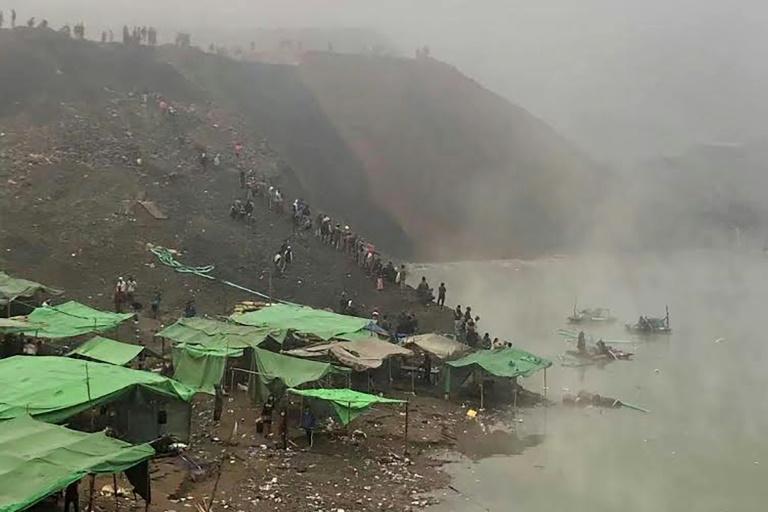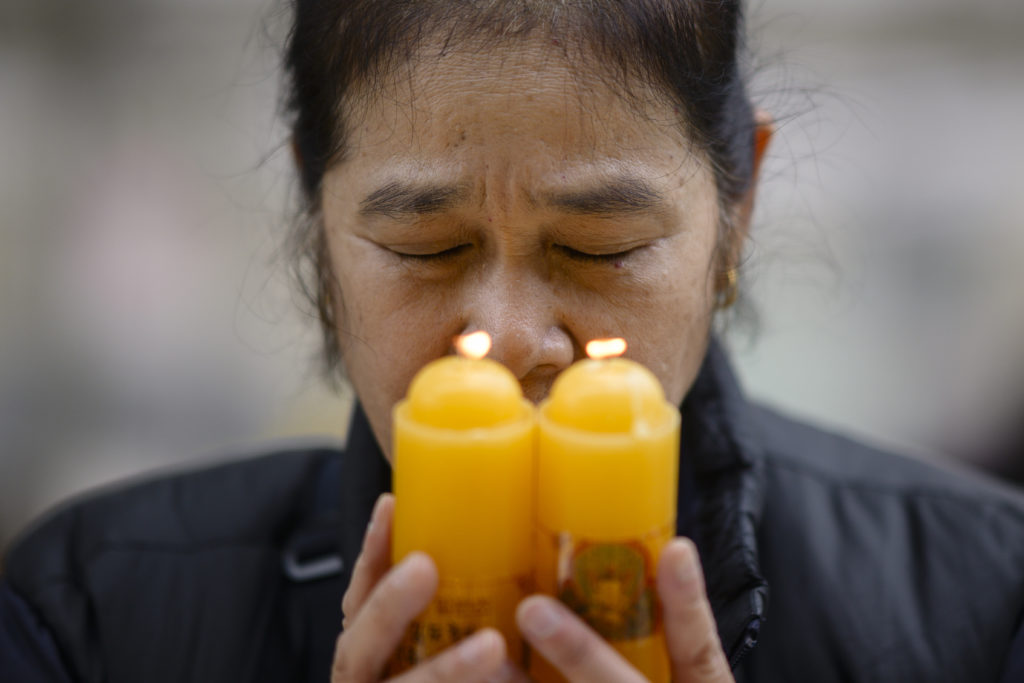Rescuers in northern Myanmar retrieved two more bodies on Thursday after a landslide at an illegally run jade mine and warned that dozens of people feared missing are likely dead.
Scores die each year working in the country’s lucrative but poorly regulated jade trade, which sees low-paid migrant workers scrape out gems highly coveted in neighbouring China.
Rescuers pulled two more bodies from the nearby lake on Thursday taking the confirmed death toll to three after one casualty was found the previous day before the operation was cut short due to fog and overnight rain.
Authorities had initially said at least 70 more were feared missing after the landslide struck early Wednesday, but later added they were still trying to confirm the number of those unaccounted for.
One of the men, a 23-year-old, came from Yinmar Pin, hundreds of kilometres away in central Myanmar, they said.
The miners at Hpakant come from across Myanmar to scratch a living picking through the piles of waste left by industrial mining firms in hopes of finding an overlooked hunk of jade.
The weather had cleared, said Ko Jack of the Myanmar Rescue Organisation, adding that six rescue teams were searching for any survivors.
“The search is going fine and no difficulty as it’s sunny now.”
But the outlook was grim, said Ko Nyi, another rescuer.
“If the dead bodies don’t float today, they will appear in the following days.”
Hundreds of diggers had returned to Hpakant during the rainy season to prospect in the treacherous open-cast mines despite a junta ban on digging until March 2022, according to a local activist.
Rescuers said increased pressure from the weight of dumped soil and rock had pushed the ground downhill into the nearby lake.
– ‘Haunting reminder’ –
The incident is the latest tragedy to hit the poorly regulated multi-billion-dollar industry.
Jade and other abundant natural resources in northern Myanmar — including timber, gold and amber — have helped finance both sides of a decades-long civil war between ethnic Kachin insurgents and the military.
Civilians are frequently trapped in the middle of the fight for control of the mines and their lucrative revenues, with a rampant drug and arms trade further curdling the conflict.
Last year, heavy rainfall triggered a massive landslide in Hpakant that entombed nearly 300 miners.
Watchdog Global Witness estimated that the industry was worth some $31 billion in 2014.
But corruption means very little reaches state coffers.
A February military coup also effectively extinguished any chance of reforms to the dangerous and unregulated industry initiated by ousted leader Aung San Suu Kyi’s civilian government, a Global Witness report said earlier this year.
The coup has also sparked fighting in Kachin state between local insurgents and the Myanmar military, the watchdog said.
Wednesday’s disaster “is a haunting reminder that lives too often come second to profit in the jade mines of Hpakant,” Hanna Hindstrom, Senior Campaigner for Myanmar at Global Witness, told AFP.
“As the military is busy turning the sector into a financial lifeline for its illegitimate regime, once again miners are paying the ultimate price.”
On Wednesday a five-day junta-run jade emporium “concluded successfully,” according to the state-backed Global New Light of Myanmar newspaper, adding all jade lots on sale had been sold to domestic and international buyers.











